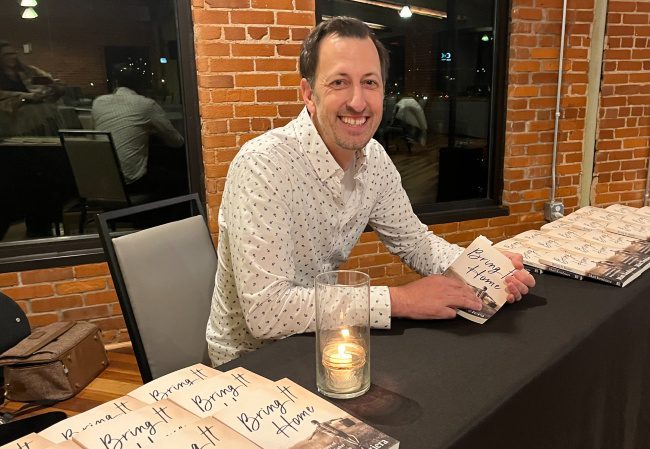I was sitting at a coffee shop with a local pastor who reached out to me wanting to hear about my views on the LGBTQIA+ community. This is something that has happened more than a few times over the past couple of years simply because people want to understand how I can still consider myself a Christian and affirm the LGBTQIA+ community when, in their words, “the Bible is clear on the issue.” To be honest, there has not been a single conversation like this in which a pastor has tried to change my mind or set me straight. They have all been great conversations in which the goal seems to be understanding, not judgment. And in all the conversations I have had, the pastors have identified that they too were thinking through and wrestling with it.
In this particular conversation, the pastor said to me at one point, “But if I change my mind on this, what is next? It is a slippery slope.” To which I responded, “It certainly is.”
The word that has been widely accepted to define a Christian person’s rethinking of faith is deconstruction. Although I am not a huge fan of labels, I do understand the need, and this word does seem to describe quite well what I personally have gone through. I bought into a carefully curated set of beliefs that has been developed over thousands of years. The moment I began to question this well-constructed theology was the moment faith deconstruction began.
My experience began with questioning conservative Christian views on homosexuality. From there it went to questioning beliefs on heaven, hell, and atonement. After that it was the infallibility of the Bible—that it has to be perfect in order to be valuable. At that point I slid all the way down the slide until I had very little left of my faith, causing me to question the existence of God altogether.
This has been a brutal process that has caused a great amount of grief, loss, and lament. I remember sitting by myself at one point, feeling angry and alone wondering if I had bought into a lie that defined my life for the past forty years. And not just any lie, but a lie that I willingly and strongly perpetuated. A lie that I shared on stages in front of tens of thousands of people. That was a very large pill to swallow, and it hurt all the way down. But eventually, after some borderline depression, a shattered career, and the loss of several close friends, I reached what felt like the bottom. The slope finally leveled off enough that I could find my footing, stand up, and look around to see where I was.
What I saw was something very exciting. In front of me was a canvas that was expansive and blank. A canvas on which I could draw or paint anything I wanted. And a canvas with which I was free to mess up and start over as many times as I needed to. Faith was never meant to be a destination. Like a beautiful flowing river, it is meant to be ever moving and ever changing.
One thing I started to put on that canvas was begin work on a big project for an anti-human-trafficking organization. When I started there, I was invited to their staff retreat. At the beginning of the retreat, I looked at everyone in the room and said, “I am good at what I am going to be doing for this organization. And because I am good at it, you, like others have in the past, might assume things about me that are not true. I need to let you know that under this confidence and ability is a guy who struggles with relationships. Underneath all the passion you will see in front of groups of people is an introvert who needs a lot of time by himself. Underneath the success you will see a lot of failures along the way. I am not here to make friends; I am here to join with all your incredible talents to make a difference in this world.”
They all thanked me for my honesty and simply moved on with the meeting. It turns out it isn’t all that hard to be honest, and most times, most people in the world will have no problem with it.
After I chatted with the pastor about the LGBTQIA+ community, he kindly let me know that my family and I are always welcome at his church. I thanked him but told him that I didn’t believe that was true since I have family members who are not straight. If it is not a safe space for them or a space where they have the same opportunities as everyone else, we are not actually welcome. He seemed to understand, we shook hands, and I headed up to the counter to buy a couple of donuts for my kids. The man behind the counter attended the pastor’s church and overheard our conversation. He looked me in the eye and said, “I completely agree with everything you said.” The slide is always more fun if you have some friends to go down it with.
Adapted from Bring It Home: The Adventure of Finding Yourself after Being Lost in Religion.
Matt Kendziera is a full-time speaker, podcaster, writer, and creator. He is the host of the Chasing Goodness podcast, engaging authors, activists, and influencers on questions that most people run from. He’s also a collaborator with several other incredible organizations such as Fierce Freedom, Rachel’s Challenge, Ashoka, Celtic Way, and Soularize. Matt currently lives in rural Wisconsin with the love of his life, Suzie and his two teenage children. Learn more and follow him at www.mattkendziera.com.


